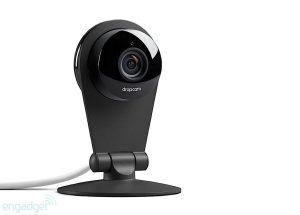Sometimes your best user is your worst user.
These days, everyone knows the tell tale signs of a troll — people who write abrasive, abusive comments, often directed at certain people, and who often blatantly ignore community standards. Prime examples of trolls are can be found in the comments section of online news outlets.
Most of your community members are respectful and easily stay within the parameters of your community standards, but occasionally a troll (or two) will pop up in your community. And, when they do, they tend to dominate discussion and shut down other members. This is bad news for your community’s health — why would anyone want to participate if they have to interact with an abusive person?
How to protect your community
Unfortunately, the chances of a troll showing up in your community at some point are pretty high — but that doesn’t mean your community managers and administrators need to be on high alert.
What do you do if/when they rear their pesky heads?
- Create easy to understand (and follow) rules
First, you need to have a solid set of community rules or standards to back you up. If you don’t already have terms and conditions every member needs to sign before participating, you should create that.
Terms and conditions shouldn’t be boring and full of legal jargon — they should be seen as an educational tool. Write in clear, understandable language, outlining what you expect — and don’t want to see — within the community. It should be a document that members can refer to in case they need help dealing with a conflict on the community or deciding if they’re allowed to promote something on the platform.
Within those guidelines, detail typical troll behavior — since that’s not what you want in your community. And give yourself power in case you see that type of behavior. A three-strikes-you’re-out policy is a good place to start. That doesn’t just go for trolling behavior. If a member violates your policy — by self promoting or behaving badly — three strikes, and then they’re out of the community. It may sound harsh, but your job is to protect the community as a whole and if they get in the way of the community’s health, they have to go.
- Regularly remind members of those rules
Sometimes members don’t realize they’re breaking the rules. Either they don’t remember what the rules are, or they don’t realize that their actions fall into the rule breaker category.
Regularly remind members about the guidelines they signed — this helps educate new users and veterans who might need a refresher. You can do this through regular email campaigns every quarter, with banner ads in your community, or reminders at the top of particularly tense discussion threads. These shouldn’t necessarily be harsh, accusatory reminders — assume good intent.
Sure, there will always be those people who don’t care and will violate the community rules they signed anyway, but regular educational campaigns should easily reduce the number of accidental violations.

- Have a plan
Even if all of your members signed a clear terms and conditions document, you need to have a plan in place for when you see a violation. Who will respond and how will you tell the member that they broke a rule? It’s not enough to just know what a violation looks like — you need to have a clear course of action outlined for a swift response.
Before you swoop in (or whoever is tasked with that job), if it’s not too inflammatory, let the comment sit for a little time — say, an hour. Hopefully fellow members will mark it or respond to the troll — you want members to feel a sense of ownership and pride within the community. If no one takes action, delete the comment and send a pre-written response to the member detailing why their comment was deleted and what number strike it is.
If you still have trouble or are getting push back, don’t be afraid to have someone higher up in the organization reach out and talk to your unruly member. Also, remember phones? Don’t be afraid to pick one up and give the member a call.
Remember: DO NOT edit a member’s comment. If you edit a member’s comment, you can be considered a collaborator, which is bad if it involves a copyright infringement or antitrust law violation. Instead, delete the comment, notify the member and let them change the comment and repost if they want.
- Don’t hesitate to take action
Toxic behavior is contagious. The occasional troll won’t permanently damage your community — it’s part of the territory that comes with community — but letting them go on too long will. Either they’ll attract more trolls, other members will shut down and stop participating, or both.
Swift action is important. Now that all your members have signed a policy and you have a plan in place, don’t be afraid to take immediate action when you see a violation. Even if the violation looks small, deal with it — members will copy other members, so if one person says something a little nasty or is too self promoting, other members will follow suit.
Conflict doesn’t equal trolling
Although the chances of you coming across trolls over the course of your community’s lifetime is high, it doesn’t mean it’s inevitable. It also doesn’t mean you should be terrified of tension or minor conflict — healthy debate is important. Plus, a community where everyone agrees is boring and unhelpful. A little tension in your community is good. And if you’ve written good, clear guidelines, members will know the difference and will know how to debate respectfully.
Have you ever dealt with a troll in your community?
Digital & Social Articles on Business 2 Community
(28)





